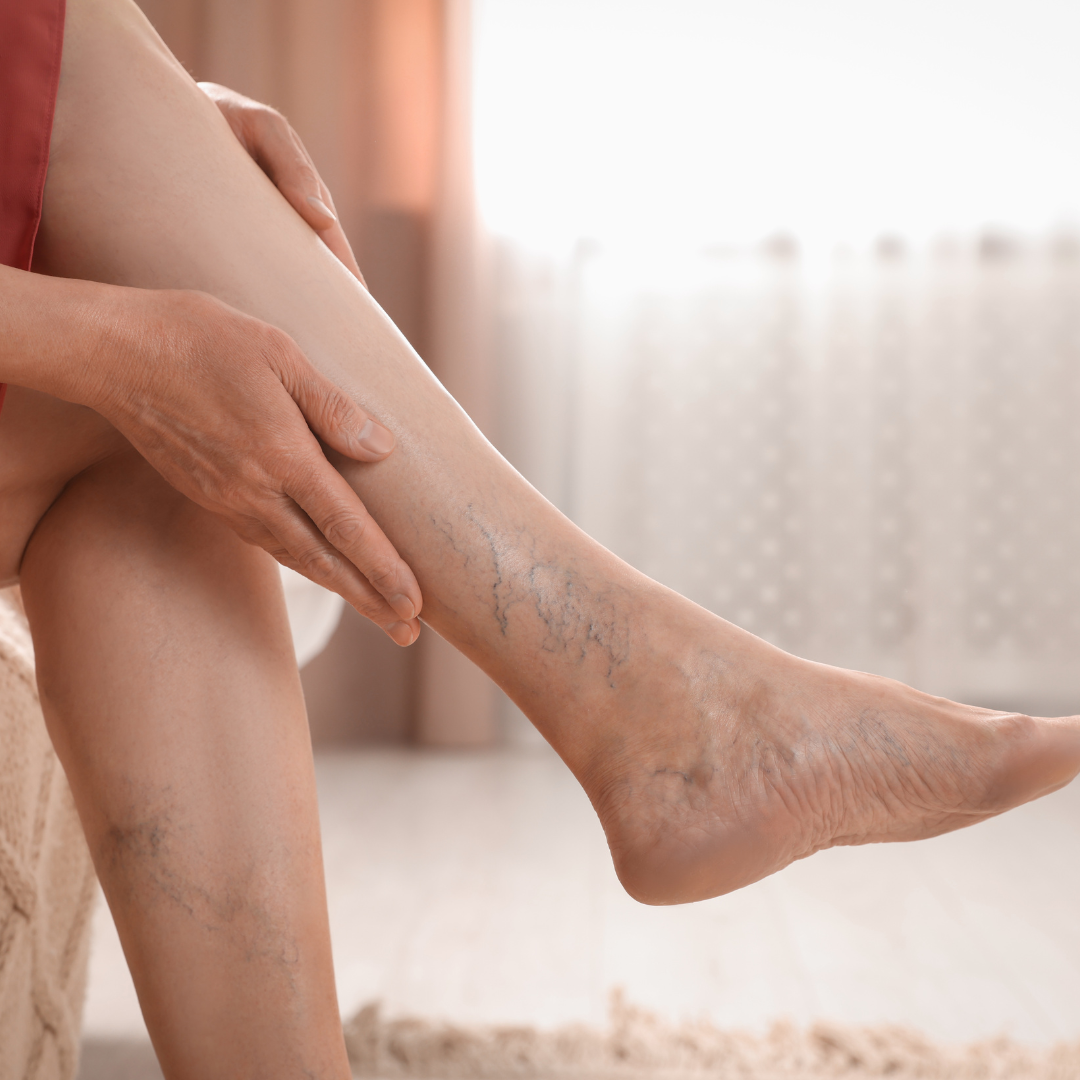Healthstar Dermatology and Eczema Care
Be comfortable in your own skin this winter.

Dry, flaky skin can lead to bigger problems.
It’s easy to dismiss a dry patch of skin, or recurrent itchiness as just another part of the winter season. But don’t ignore your dry, flaky skin! Excessive itching can lead to bleeding, cracking skin that can be painful and even become infected. Luckily, for most dry skin, the solutions are simple: keep the lotion layered on, avoid too-hot showers and introduce moisture into your dry winter environment.Read on to learn more about some types of winter skin conditions, and how to treat them.
Practice self skin-care this winter!
Dry, cold air can cause some major skin irritation in even the healthiest skin. Treat and prevent irritated, dry skin with these home remedies:
- Cool it in the shower or bath. It may seem luxurious to crank the heat up on your water, but you’re actually drying out your skin and potentially causing rashes to worsen.
- Regularly apply moisturizers, especially right after your bath. Lotions work to keep your skin hydrated better when your skin is a little damp. And look for lotions with “emollients,” which help prevent cracking and splitting skin.
- Start a bedtime routine. Slather your hands and feet with a thick moisturizer of your choice--you can even use Vaseline--and cover them with cotton gloves and socks while you sleep.
- Exfoliate to gently remove the layers of dead, flaky skin, and then (of course!) apply moisturizer. If you have eczema, skip this step! Exfoliation will worsen eczema.
- Dress for the weather. Prolonged exposure to dry, cold winter air can cause serious skin discomfort.
- Use a humidifier. The warm, dry air in your house may be affecting everything from your sinuses to your hair and skin. Add a bit of moisture to your atmosphere with a small humidifier. Just make sure to clean it out according to the directions. You don’t want to circulate mold along with that moisture.
- Wear sunblock. Choose a moisturizer with SPF for your face and hands to keep them protected, even during the winter.
What if you have eczema?
Eczema is a condition in which recurrent, uncomfortable, itchy rashes appear on the skin. Often, those with the condition have overactive immune systems. This kind of eczema is called atopic dermatitis, and symptoms can be triggered by stress, environment, and food. Pinpointing a person’s specific triggers for their eczema flare-ups can be challenging, because sometimes the rash doesn’t show up until some time after exposure.Triggers can be anything from metals, such as:
- Chromium
- Cobalt chloride
- Copper
- Gold
- Nickel
To environmental allergens, like cigarette smoke or insect bites. Any number of chemicals can cause eczema symptoms, too.
Who gets eczema?
Atopic dermatitis can develop at any time, though it usually begins in early childhood or infancy. It’s not contagious. It’s often related to other allergic conditions, such as asthma or hay fever and food allergies.
Living with eczema
Those living with eczema know that winter can be very uncomfortable. According to the National Eczema Association, even people who don’t normally experience skin discomfort have flare-ups during this dry, cold time of year.Regulating your temperature with appropriate clothing, and adding layers of blankets on the bed instead of one big comforter can help keep eczema under control. Also remember to keep your skin moisturized, and turn on the humidifier while you’re at home.
Tips from Healthstar Dermatology and the National Eczema Association
Sometimes it’s not just what you do to care for your eczema symptoms, but how you do it. Follow the three-step solution for keeping your dry, itchy and painful eczema manageable this winter:
- Clean: Take at least one lukewarm bath or shower every day, preferably at night. Use cleanser with a PH below 5.5, free of any dyes or irritants. Don’t scrub any irritated or rashy areas!
- Treat: Gently pat the skin to dry, and apply medication prescribed by your dermatologist while the skin is still damp.
- Moisturize: Lock in the moisture by applying ointments or cream all over your skin, not only on the rashy areas. Slather on moisturizer any time you start to feel itchy or dry throughout the day.
Even people who follow the three steps daily may discover that flare-ups still happen, and they may need to try other treatments to help keep their symptoms under control.
Common medical treatments for eczema:
There isn’t a cure for eczema, but it is manageable. Your dermatologist may recommend one or several of the following treatments for moderate to severe eczema:
- Topical treatments include steroids to reduce inflammation, topical calcineurin inhibitors (TCIs) to help control itching, phosphodiesterase 4 (PDE4) inhibitors, which block enzymes that trigger itching, and prescription skin barriers to help prevent moisture loss and protect the skin.
- Phototherapy, or light therapy, is done several times per week in a doctor’s office.
- Immunosuppressants help control an over-irritated immune system.
- Biologics are engineered from proteins derived from living cells or tissues, and are taken by injection. They slow the immune system reaction to control inflammation.
When skin symptoms might mean something more.
Winter can be harsh on people without eczema, too. But, even if you think your skin condition is purely seasonal, take care of it. According to Mayo Clinic, dry skin isn’t much to worry about, by itself. But it can lead to painful sores and even infections if not properly taken care of.Changes in the skin can be associated with hormone changes, for both men and women. Fatigue, stress and changes in diet (Sounds like the holiday season to us!) can all result in those itchy, uncomfortable patches on our bodies. A new food allergy, a change in your environment … lots of things can be happening with your body to trigger skin symptoms. Listen to your skin! It can tell you a lot.Sometimes, rashes and sores can be a sign of something more serious. Unusual rashes, bumps or bruises can be associated with diabetes, infections, severe allergies to foods, soaps and other irritants, and even some forms of cancer. If you have any doubts or concerns about your skin, don’t hesitate: call your dermatologist at Healthstar Dermatology, or primary healthcare provider, today. It’s always better to be safe than sorry. Healthstar Dermatology is part of the Healthstar network of trusted physicians in the Lakeway area. Visit Healthstar Dermatology at 1907 West Morris Blvd, Morristown, Tennessee, or call 423-318-0014.Visit our blog at healthstartn.org/blog for more information about medical conditions, healthy living and more.




